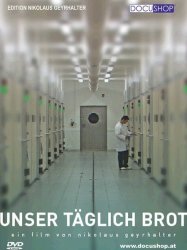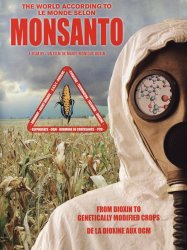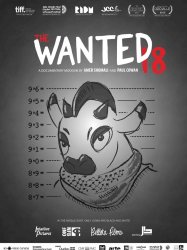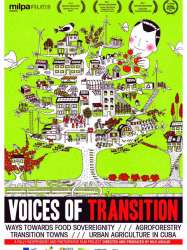Koundi et le jeudi national is a camerounais film of genre Documentary
Koundi et le jeudi national (2010)

If you like this film, let us know!
- Infos
- Casting
- Technical infos
- Photos
- Videos
- Film quotes
- Characters
- Music
- Awards
Koundi et le jeudi national is a 2010 documentary film.
Synopsis
Koundi is a large village with around 1,200 inhabitants, located in Cameroon's East Province. Aware of Koundi's richness in timber, the villagers decide to use it to alleviate poverty. They organise a union, the Organisation for Communal Interests, and create a cocoa plantation over several hectares to be able to depend on themselves. They also institute "National Thursday": Once a month, they all work on the development of the cocoa plantation. Village life through the prism of self-management.Comments
Leave comment :
Suggestions of similar film to Koundi et le jeudi national
There are 8855 with the same cinematographic genres, 1935 films with the same themes (including 2 films with the same 6 themes than Koundi et le jeudi national), to have finally 70 suggestions of similar films.If you liked Koundi et le jeudi national, you will probably like those similar films :

Our Daily Bread (2006)
, 1h32Directed by Nikolaus Geyrhalter
Origin Austria
Genres Documentary
Themes Cooking films, Environmental films, La mondialisation, Films about the labor movement, Documentaire sur la cuisine, Documentary films about business, Documentary films about environmental issues, Documentaire sur le monde paysan, Documentaire sur le monde du travail
Rating75%





Le documentaire fournit des images sur le fonctionnement des plus grandes industries agroalimentaires européennes que ce soit dans le domaine de la production des fruits et légumes que dans celle de la viande. Ni musique ni commentaire ne viennent accompagner les séquences filmées. Le décor est constitué de champs, d'usines, d'abattoirs, et le réalisateur utilise de longs plans fixes y compris pour filmer les ouvriers en train de manger.

We Feed the World (2005)
, 1h36Directed by Erwin Wagenhofer
Origin Austria
Genres Documentary
Themes Cooking films, Environmental films, La mondialisation, Films about the labor movement, Documentaire sur la cuisine, Documentary films about business, Documentaire sur l'altermondialisme, Documentary films about environmental issues, Documentaire sur la malbouffe, Documentaire sur le monde paysan, Documentary films about health care, Documentaire sur le monde du travail
Rating74%





Avec We Feed the World, le documentariste Erwin Wagenhofer propose aux spectateurs un regard sur l'agriculture mondiale moderne. En passant par la Roumanie, l'Autriche, le Brésil, la France et l'Espagne, son enquête se focalise sur la manière dont est fabriqué ce qui arrive dans notre assiette. Il montre que la domination du Nord sur le Sud est prégnante. Comment est-il possible qu'en Afrique l'on achète des produits européens ou asiatiques comme le poulet thaïlandais ? Le réalisateur présente une face peu connue de la mondialisation : en achetant un poulet industriel, on contribue au défrichement de l'Amazonie car le Brésil déforeste pour cultiver le soja qui sert à nourrir les volailles élevées en batterie (90 % de la production de soja du Brésil est exportée). Le documentaire souligne également la différence entre industrie agroalimentaire et petite exploitation. We Feed the World adopte un style « coup de poing » visant à éveiller les consciences.

Katanga Business (2009)
, 1h30Directed by Thierry Michel
Origin Belgique
Genres Documentary
Themes Films set in Africa, Environmental films, La mondialisation, Films about the labor movement, Documentary films about business, Documentary films about environmental issues, Documentaire sur le monde du travail
Rating68%





The province of Katanga in the south east of the Democratic Republic of the Congo (DRC) has huge mineral riches including uranium, zinc, copper and cobalt.
 , 1h48
, 1h48Directed by Marie-Monique Robin
Origin France
Genres Documentary
Themes Environmental films, La mondialisation, Films about the labor movement, Documentary films about business, Documentaire sur l'altermondialisme, Documentary films about environmental issues, Documentaire sur le monde du travail
Rating79%





The film reports many controversies surrounding the use and promotion of genetically modified seeds, polychlorinated biphenyls (PCBs), Agent Orange, and bovine growth hormone. Cases in the United States (including Anniston, Alabama), Canada, India, Mexico, Paraguay, the United Kingdom (Scotland) and France, are explored, claiming that the Monsanto corporation's collusion with governments, pressure tactics, suppression and manipulation of scientific data, and extra-legal practices aided the company's attempts at dominating global agriculture. Scientists, representatives of the United States Food and Drug Administration and the United States Environmental Protection Agency, civil society representatives, victims of the company’s activities, lawyers, and politicians are interviewed.

Leader-Sheep (2011)
, 2hDirected by Christian Rouaud
Origin France
Genres Documentary
Themes Environmental films, Films about the labor movement, Documentary films about environmental issues, Documentaire sur la société humaine, Documentaire sur le monde paysan, Documentaire sur le monde du travail
Rating71%





Ce documentaire retrace, de 1970 à 1981, dans le cadre immense du haut plateau du Larzac, Aveyron (Massif central) mais aussi dans la ville de Paris, les onze années de luttes non violentes et inventives menées par les paysans et paysannes du lieu contre leur expropriation au profit du projet de l'époque d'agrandir le camp d'entraînement militaire du Larzac. Ces hommes et ces femmes de la micro-société paysanne conservatrice et catholique française de l'époque se virent avec étonnement et parfois un peu de crainte épaulés par des dizaines de milliers de personnes qui, pour certaines, ont depuis fait souche dans ce pays en s'installant comme agriculteurs.

The Wanted 18 (2014)
, 1h15Origin Canada
Genres Documentary, Animation
Themes Films set in Africa, Films about animals, Environmental films, Films about religion, Films about the labor movement, Documentary films about business, Documentary films about law, Documentary films about environmental issues, Documentary films about war, Documentary films about historical events, Documentary films about politics, Documentary films about religion, Documentaire sur le monde du travail, Films about cows, Political films, Films about Jews and Judaism, Mise en scène d'un mammifère
Rating71%





L'œuvre présente les efforts des Palestiniens habitant la ville et la région de Beit Sahour, en Cisjordanie, pour démarrer une petite industrie laitière locale au cours de la première Intifada, en cachant un troupeau de dix-huit vaches laitières aux forces de sécurité israéliennes qui considérait la production de laitages comme une menace pour la sécurité nationale d'Israël.
 , 22minutes
, 22minutesOrigin Danemark
Genres Documentary, Animation
Themes Cooking films, Environmental films, Films about the labor movement, Documentaire sur la cuisine, Documentary films about business, Documentary films about environmental issues, Documentary films about historical events, Documentaire sur le monde du travail, Mise en scène d'une plante
Rating74%





Fiche technique Directeur et auteur : Anders Sørensen ;

Cursed for Gold (2008)
, 1h33Directed by Olivier Weber
Origin France
Genres Documentary
Themes Environmental films, La mondialisation, Films about the labor movement, Documentary films about business, Documentaire sur l'altermondialisme, Documentary films about environmental issues, Documentaire sur le monde du travail, Documentary films about nature, L'Or

Voices of Transition (2012)
, 1h5Origin France
Genres Documentary
Themes Environmental films, La mondialisation, Films about the labor movement, Documentary films about business, Documentary films about environmental issues, Documentary films about technology, Documentaire sur le monde du travail, Disaster films
Rating75%





Using interviews and overlays of graphics and text, the film presents the current problems facing industrial agriculture. It explores why in the interviewees' view the current industrial model is not up to the task of feeding the world's people. According to the film every calorie of energy contained in a food source currently takes between 10 and 20 calories of crude oil in the production of fertilizers and transportation to produce, leading to a strong dependence of the cost of food on oil prices. As a result of peak oil and increasing oil prices this dependence will lead to ever increasing food prices. According to the film, this dependence already represents a significant weak-spot in the global food supply chain. Additionally, agriculture is already responsible for 40% of greenhouse gas emissions, contributing to climate change. Furthermore, the film argues that the overuse of inorganic fertilizers has been responsible for the loss of soil fertility and threatens the complete loss of usable soil within the next decades through soil erosion and sinking crop yields. These effects, according to the film, can only be partly mitigated by the increased use of those same fertilizers. The loss of workplaces, the concentration of land in the hands of a few (allegedly a farm closes every 23 minutes in France) as well as the dependence on large corporations are enumerated as side effects of the industrialisation of agriculture since the 1920s. Companies, such as Monsanto and Bayer, control everything from seed stock to fertilizers and the necessary chemical mixes for hybrid plants, thereby controlling the entire supply chain. The film argues that this development was supported through subsidies from the World Bank. Interviews with Vandana Shiva, the founder of the Transition Towns movement Rob Hopkins and various agricultural experts serve to argue this viewpoint. The dependence on crude oil is illustrated through the example of the wholesale food market in Rungis.
 , 1h52
, 1h52Directed by Jean-Paul Jaud
Origin France
Genres Documentary
Themes Cooking films, Environmental films, Films about the labor movement, Documentaire sur la cuisine, Documentary films about business, Documentary films about environmental issues, Documentaire sur la malbouffe, Documentary films about health care, Documentaire sur le monde du travail, Documentary films about nature
Rating67%





Our Children Will Accuse Us tells the story of an initiative in Barjac, a commune located in the Gard department in southern France, that decided to introduce organic produce into the town's school cafeteria. The film depicts without concessions the environmental tragedy which threatens the young generation: the poisoning of our country sides by agricultural pesticides (76 000 tons of pesticides used each year in France) and the harm caused to public health and safety.
 Connection
Connection